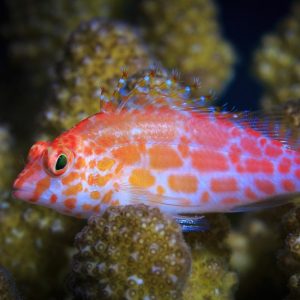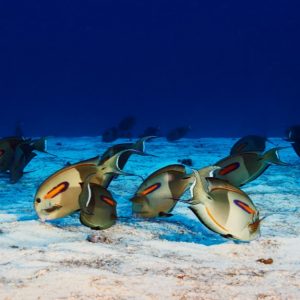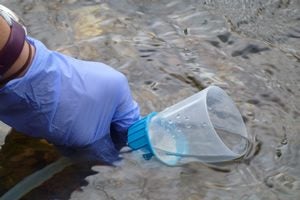Marine Phylogeography
Phylogeography, as a subdiscipline of biogeography, is the study of the abiotic factors and evolutionary processes that affect the distribution of genetic lineages and diversity at the intraspecific level through space and time. Our lab has used these approaches to delineate barriers to gene flow, to discern isolated populations, and to identify signatures of population structure that result from disjunct habitats or contrasting environments. Read More.

Population genomics and EVOLUTIONARY BIOLOGY
Our lab combines whole genome sequencing, targeted approaches, and RADSeq with field-based studies to address some of the oldest yet still hotly debated questions in biology: how do species form and specifically what are the roles of geographic isolation, ecology, and selection in the diversification of lineages? We have a number of ongoing projects involving deep-sea grenadiers, hawkfishes, and surgeonfishes. Read More.

ENVIRONMENTAL DNA
Environmental DNA (eDNA) is the trace genetic material in soil, sediment, water, or air that is derived from whole microbial cells or cells shed/excreted from organisms as skin, hair, urine, faeces, mucus and gametes. Using protocols to extract and sequence eDNA (using high-throughput sequencing) from water samples, we are able to determine community composition, delineate species distributions, detect rare or endangered species and monitor invasive species. Read More.

